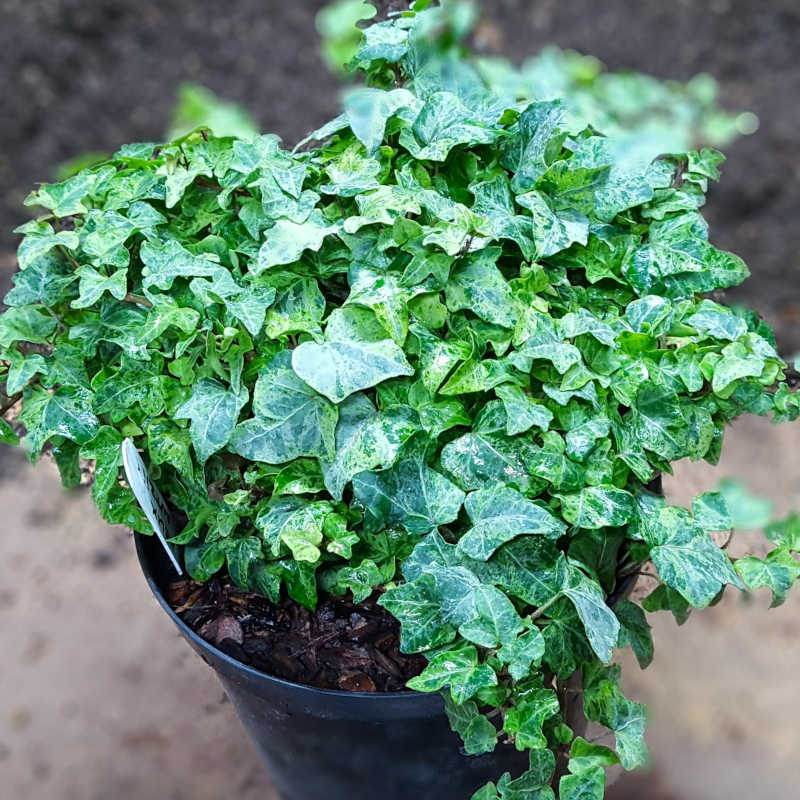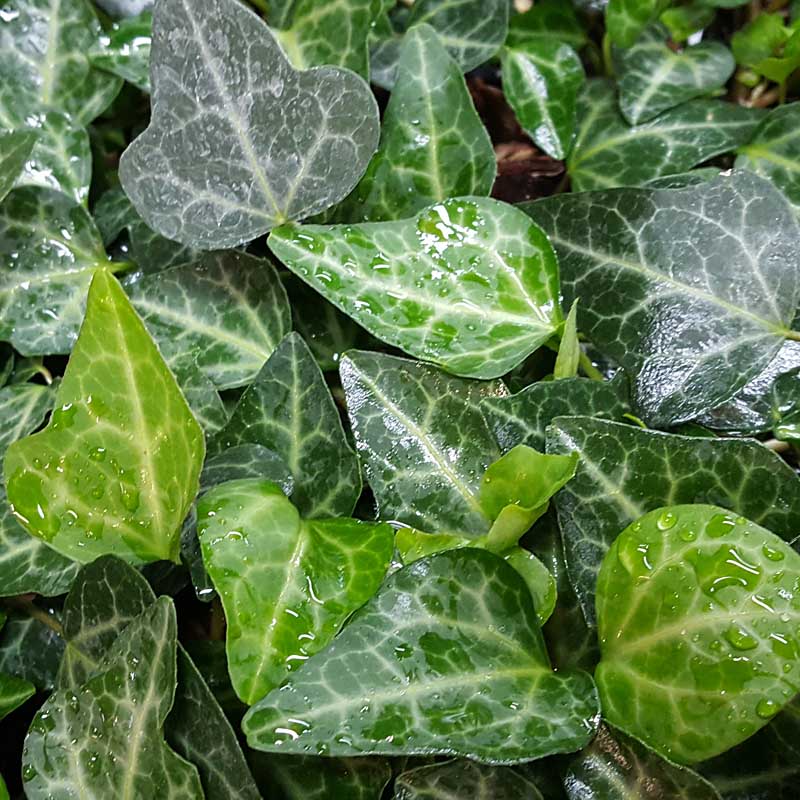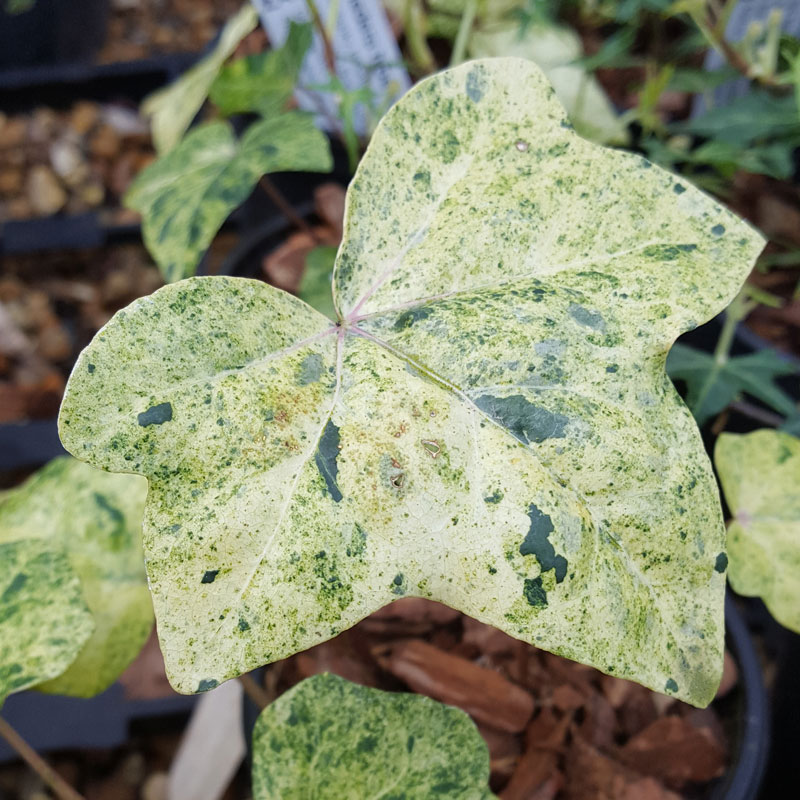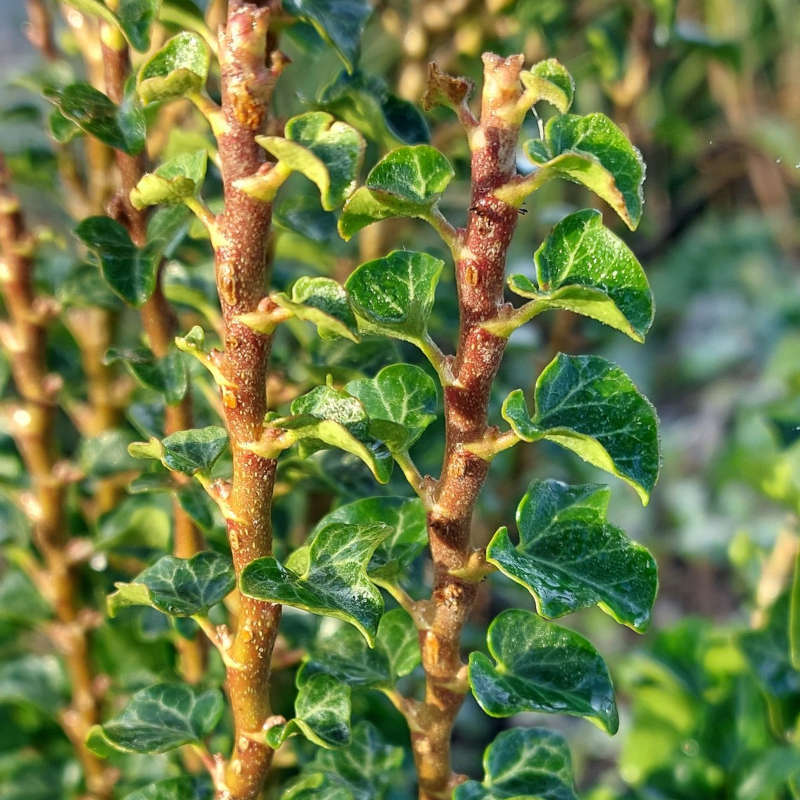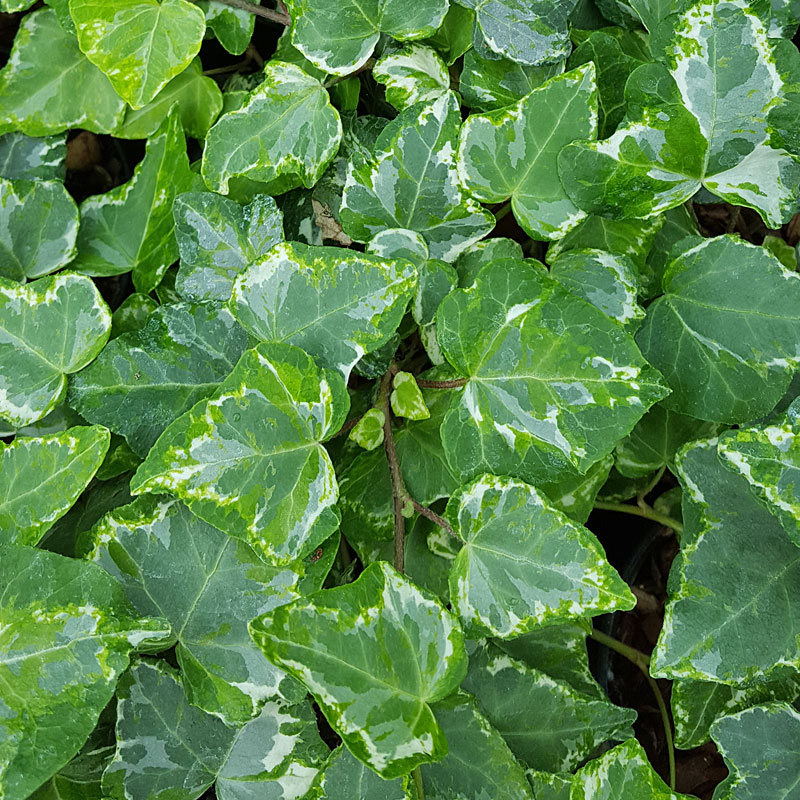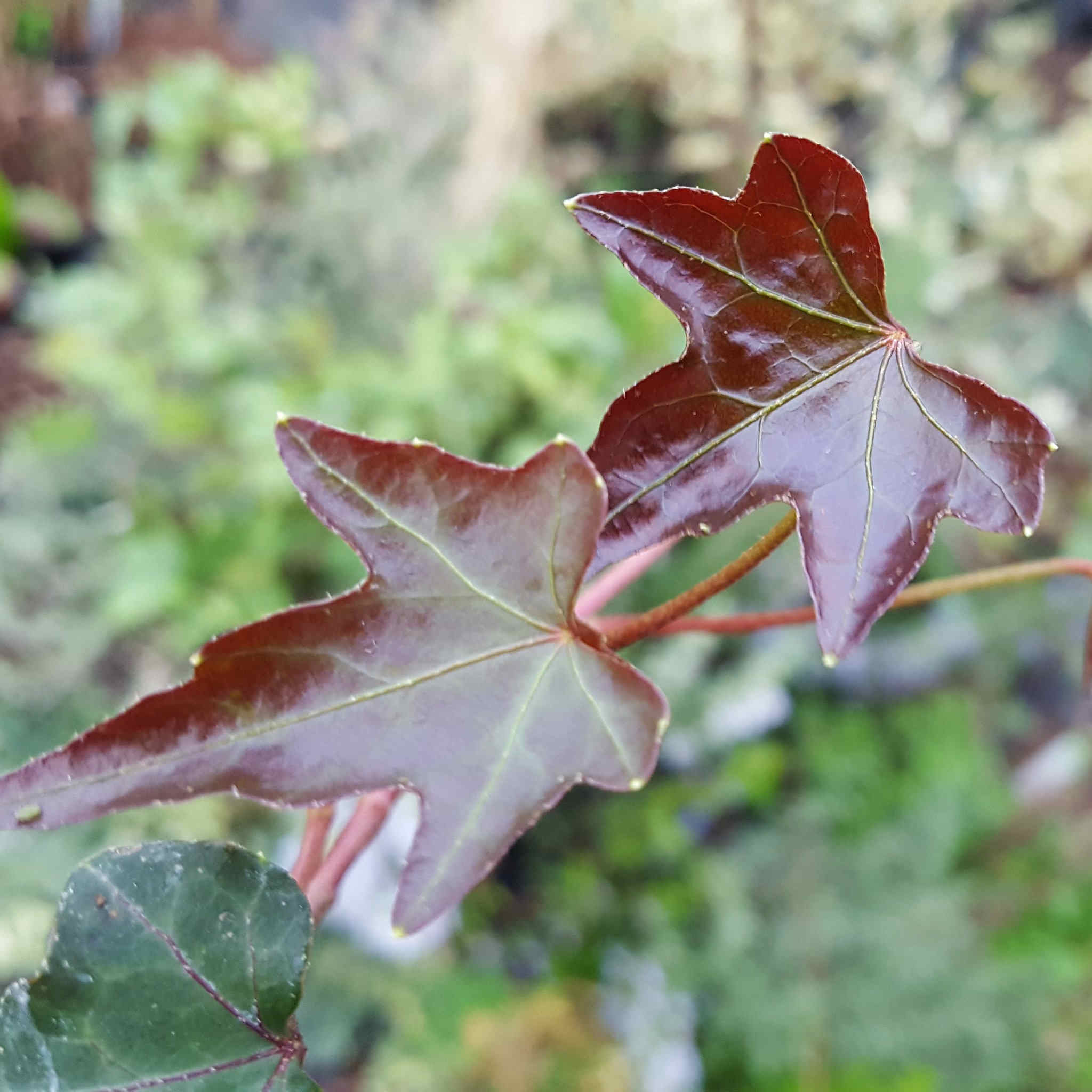Ivies
Ivies are versatile plants and varied enough that there is sure to be one to suit your garden, container, wall/fence or anywhere else!
All our ivies come from the family Hedera and are divided up here by size/type and listed by country/region of origin. Ranging in size from tiny creepers and neat little bushy plants up to large leafed rapidly climbing species we hope that the division by size will be helpful in choosing your ivies.
The well known native species are the English Ivy, Hedera helix and the Irish Ivy, Hedera hibernica and the vast majority of cultivars come from these species.
Around southern Europe, north Africa and the Mediterranean there are a number of other species which are more or less hardy in the UK including Hedera algeriensis, H azorica, H canariensis, H colchica and H iberica. Most of these have quite large architectural leaves compared to our native species.
Moving towards Asia, Hedera pastuchovii is found from the Mediterranean eastwards. Hedera nepalensis and H rhombea further east to Japan.
Ivies by type: |
Miniature/Small The smallest types with a creeping or climbing habit. Suitable for containers or the smallest spot in the garden. |  |  | Medium Typically sized ivies that will provide a good groundcover under shrubs, trees or a hedgrow, or climb to cover a fence, wall or other upright surface! |  |  | Large Large leafed forms of ivy also tend to be the fastest growers and the most architectural though many are not as tough and hardy as the smaller types. |  |  | Bushy & Arborescent Both the neat little bushy types which are a semi-adult form of growth, and the proper adult growth arborescent types to be found here. |
Ivies by species: |
Hedera helix The English ivy has a very large number of cultivars and wild forms grown for their useful evergreen foliage forms. Many variegated forms. |  |  | Hedera hibernica The Irish ivy is very hard to distinguish from Hedera helix without a hand lens and many cultivars may yet be moved from one to the other! |  |  | Hedera - other species All the other species and their forms from Hedera azorica to Hedera rhombea, the Azores east to Japan. |  |  | |
